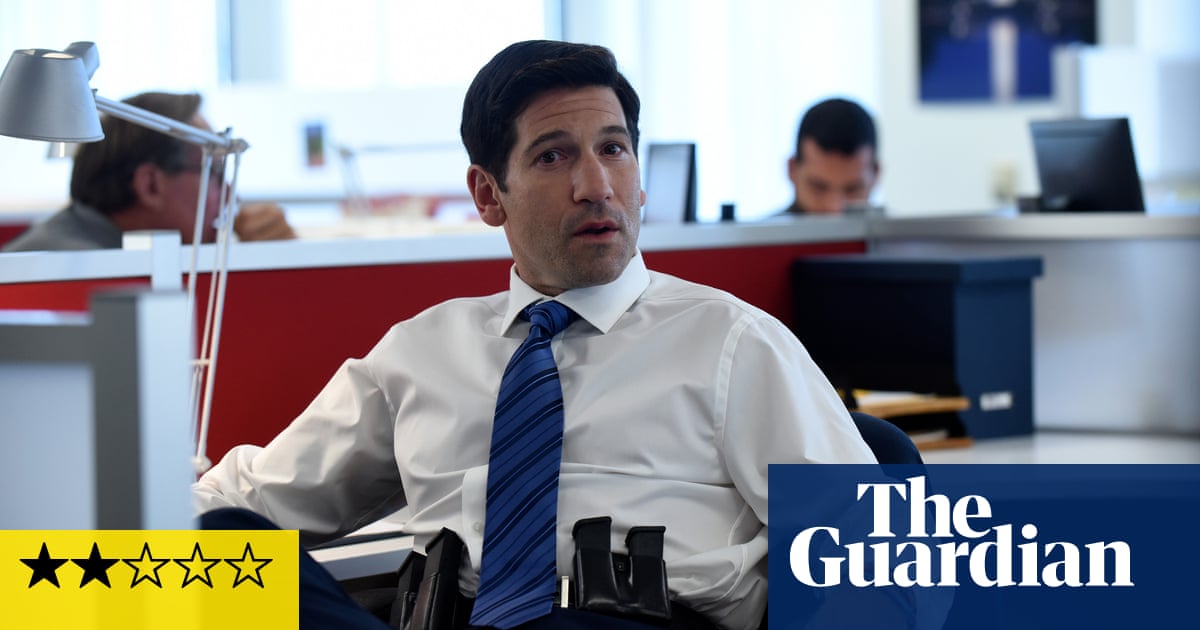The Premise review – tasteless TV that will leave you feeling grubby - 4 minutes read

The premise of The Premise (Disney+) is vague enough to require an explanation from its creator, BJ Novak, before it begins. This to-camera introduction gives it an old-fashioned feel – which is jarring, because it sets itself up as a very modern show. The trailer calls it “an anthology of now”, although that only muddies the waters. Essentially, it is a short comedy-drama series. Each episode has a discrete cast and a discrete story that takes a modern concern and forms it into a plot. It feels like an exercise in creative writing – an ambitious idea more than the successful execution of an ambitious idea. And, on the basis of the opening double bill, it doesn’t quite land.
The first episode, Social Justice Sex Tape – how’s that for a hot-button title? – combines pornography, cancel culture, institutional racism and police brutality into an absurd legal comedy farce. Ben Platt stars as Ethan, a “woke bro” type who lives in a gentrifying area, goes on marches, donates money to charity and vociferously tweets support for various anti-racism causes. While masturbating to a sex tape he made with an ex-girlfriend, he realises that he has captured evidence in the background that exonerates an innocent black man, Darren Williams, who is in prison awaiting trial.
Ever the ally, Ethan takes the tape to the lawyers defending Darren and agrees to let them show it in court, to prove that the police who arrested him are lying. If there is any sense of realism to start with, it is rapidly tossed aside, showing the video in full, graphic detail in the lawyers’ office and in court, without sparing anyone’s blushes by blurring or cropping out inessential parts.
Here, the episode starts to founder and grab at straws, in trying to find the premise. One solid line of inquiry is the futility, or not, of online sloganeering; among the few moments that elicited a laugh was the state lawyer trawling through Ethan’s Twitter history, pointing out that he called for the police to be abolished in one tweet and for more law enforcement at a Tame Impala concert in another. But this is a cheap joke.
Other themes are thrown up with little thought about where they will land. Ethan’s credibility as a witness is corroded with various accusations that his sex tape is a deep fake, that he is a crisis actor or an “incel”, or perhaps all of the above. The tape becomes about Ethan, his unique sexual style and whether or not he expected his life to be torn apart for coming forward with what he saw as evidence. It becomes more muddled as the farce stacks up. Is it about cancel culture or social justice? Privacy or activism? It seems coy about going too far while pushing a silly story to a chaotic conclusion.
The second episode, Moment of Silence, is of more questionable taste. Jon Bernthal plays the grieving father of a five-year-old girl killed during a school shooting. He pursues a job doing PR for a prominent gun lobby, here called the NGL. Again, any notion of realism is thrown out as soon as the what-if-this-happened twist becomes clear. The organisation is thrilled with the coup of getting him on staff and asks him to observe a minute’s silence for the anniversary of the shooting, which will be broadcast to the country. It will, they promise, have a big impact. What could possibly go wrong?
The episode is a slow build towards a bleak resolution and is as sombre and grim as the first episode was ridiculous. Social Justice Sex Tape took an idea and had fun with it, but there is clearly no fun to be had in this. Instead, it settles for a self-satisfied told-you-so. It is unpleasant viewing for all sorts of reasons; it left me feeling grubby, rather than educated or provoked.
Novak is an accomplished writer and actor, best known for the US version of The Office, but The Premise seems to take novel ideas and flatten them out. There are five episodes, with the final three examining trolling, celebrity worship and redemption, tied to the development of a butt plug. There is clearly ambition behind the first two episodes, but the later premises sound much more appealing – and like a far happier match between subject matter and tone.
Source: The Guardian
Powered by NewsAPI.org